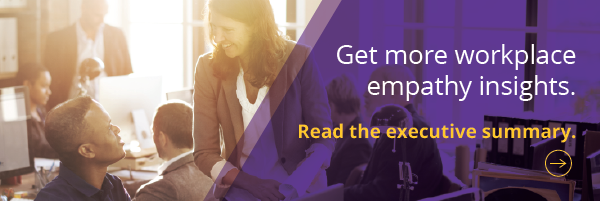
Recently, Jon and I were discussing the importance of diversity and inclusion here at Businessolver and he said something that really struck me: “Diversity in the workforce drives diversity in ideas. It’s not just about meeting certain criteria, but about fostering innovation and growth.”

Hiring a diverse workforce is about much more than checking the box to say you have an equal male to female ratio or an allotted number of Gen-Xers on your payroll. At Businessolver, we hire a diverse workforce because we know that bringing people together with different backgrounds will foster a new way of thinking and create new opportunities for growth.
According to research by McKinsey, companies that exhibit gender and ethnic diversity are, respectively, 15 percent and 35 percent more likely to outperform those that don't. Research also indicates that organizations with greater racial and gender diversity have higher sales revenue, higher profits, and more customers.
Beyond business benefits, a diverse workforce can open employees to new ideas, cultures, and perspectives that improve their professional and personal lives.
There’s no question that driving diversity in the workplace is critical, but doing so isn’t always a seamless process.
I previously wrote about the bias many of us have toward different generations, and Businessolver hosted a webinar on that same topic. We’re all engrained with certain biases that influence the way we think and act. These biases take shape during our formative years and are influenced by both nature and nurture – everything from our parents to geography and technology. Sometimes, those biases expand beyond generation, and the key to overcoming them is fostering a culture of empathy.
Why empathy? Unlike compassion or kindness, empathy literally requires you to take on the other person’s point of view. It isn’t just about doing something thoughtful or nice, empathy means taking the extra step to understand what an individual person needs based on their experiences. While compassion and kindness are certainly important too, empathy in the workplace is invaluable – it allows us to better understand each other so we can bridge our biases.
Learn more about how empathy can foster an inclusive workplace: Download our 2019 State of Workplace Empathy here. Also, subscribe to our blog to get the latest updates on empathy and everything else new and noteworthy at Businessolver.



.png)